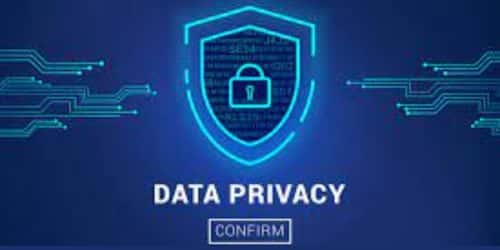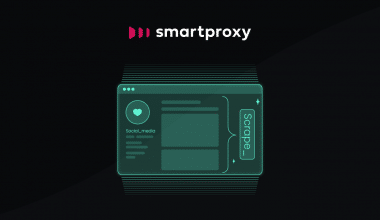The concept of internet privacy has emerged as a critical concern for individuals and organizations alike. The digital landscape we navigate daily is fraught with hidden risks where personal information is vulnerable to exploitation, surveillance, and misuse. Understanding the significance of internet privacy access and taking proactive steps to protect our digital usage has become more crucial than ever before. Let’s explore effective strategies on how to safeguard one’s valuable digital privacy as well as some of the laws in place to protect our online space.
What is Internet Privacy?
When we talk about Internet privacy, we generally refer to individuals’ ability to control and protect their personal information and online activities when using the Internet. It involves the right to determine what information is shared, who has access to it, and how it is used. Given the evolving nature of the internet and technological advancements, maintaining internet privacy has become increasingly complex. It requires individuals to be aware of their privacy rights, use secure online practices, and advocate for stronger privacy protections to ensure their personal information remains confidential and secure. Internet privacy encompasses various aspects, including the following;
#1. Data Collection
Internet privacy protects personal data from being collected without the user’s consent. This includes information such as name, address, contact details, financial data, and browsing history.
#2. Data Security
It pertains to safeguarding personal information from unauthorized access, hacking, or data breaches. Encryption, secure browsing protocols, and strong passwords are some measures taken to enhance data security.
#3. Online Tracking
Internet privacy addresses the monitoring and tracking of users’ online activities by websites, advertisers, or other entities. This includes the use of cookies, web beacons, and other tracking technologies to gather data for targeted advertising or user profiling.
#4. Online Anonymity
Internet privacy encompasses the ability to maintain anonymity while using the internet. This involves hiding one’s identity, IP address, and online activities from being easily traced back to the individual.
#5. Consent and Control
It emphasizes the need for individuals to have control over the information they share online and the ability to provide informed consent for data collection and usage.
#7. Privacy Policies and Regulations
Legal frameworks, rules, and privacy policies that specify how businesses handle user privacy and personal information are also in place to govern Internet privacy.
#8. Surveillance and Government Interference
Internet privacy encompasses protection against surveillance and intrusion by governments or other entities that may violate individuals’ privacy rights.
Why is Internet Privacy an Issue?
Because not paying attention to it can result in a whole lot of difficulties, such as data breaches, online tracking and profiling, loss of control, online harassment and cyberbullying, discrimination, and targeting – the list is endless.
Why Should We Have Privacy on the Internet?
We should enhance privacy when using the internet because it enables individuals to better protect their personal security, maintain their autonomy, and foster a free, inclusive, and democratic online environment. Additionally, privacy protections can build trust among users, encourage responsible data practices by organizations, and promote ethical behavior in the digital realm. The following are more specific reasons why we should have online privacy
#1. Personal Security
Internet privacy helps protect individuals from various risks, such as identity theft, fraud, and cybercrime. By keeping personal information confidential, individuals can reduce their vulnerability to malicious actors who may exploit their data for harmful purposes.
#2. Freedom of Expression
Privacy on the internet enables individuals to freely express their opinions, beliefs, and ideas without fear of surveillance, censorship, or retribution. It fosters an environment where diverse viewpoints can be shared and discussed openly.
#3. Autonomy and Control
Internet privacy empowers individuals to have control over their personal information. It allows them to decide what information to share, with whom, and for what purpose. Privacy preserves autonomy and prevents unwarranted intrusion into personal lives.
#4. Avoiding Discrimination and Prejudice
Privacy helps protect individuals from discriminatory practices based on personal characteristics such as race, gender, religion, or political beliefs. Without privacy, personal information can be misused to target individuals or perpetuate biased decision-making processes.
#5. Personal and Professional Reputation
Privacy safeguards individuals’ personal and professional reputations by preventing unauthorized access to sensitive information. Unwanted disclosure of personal data can lead to reputational damage, affecting relationships, employment prospects, and personal well-being.
#6. Psychological Well-being
Privacy is crucial for maintaining psychological well-being in the digital age. It allows individuals to have a sense of control, security, and personal space. Invasion of privacy, on the other hand, can lead to anxiety, stress, and a loss of trust in online interactions.
#7. Innovation and Creativity
Privacy encourages innovation and creativity by providing a safe space for experimentation and exploration. When individuals have confidence that their ideas and activities are not constantly monitored, they are more likely to engage in new ventures and express themselves creatively.
#8. Democracy and Human Rights
Privacy plays a crucial role in upholding democratic values and protecting fundamental human rights. It enables individuals to engage in private conversations, seek information, and exercise their rights to privacy, freedom of speech, and association.
How To Protect Your Internet Privacy
Protecting your internet privacy involves implementing various measures and practices to safeguard your personal information and online activities. The following are some steps you can take to enhance your internet privacy:
#1. Strong Passwords
Use unique, complex passwords for each online account, and consider using a password manager to securely store and generate passwords.
#2. Two-Factor Authentication (2FA)
Enable 2FA whenever possible, which provides an additional layer of security by requiring a second form of verification, such as a text message code or biometric authentication.
#3. Secure Browsing
Utilize HTTPS-enabled websites, indicated by a padlock symbol in the browser’s address bar, to ensure encrypted communication between your device and the website.
#4. Privacy Settings
Regularly review and adjust privacy settings on social media platforms, web browsers, and other online services to limit the amount of personal information shared and the visibility of your data.
#5. Limit Data Sharing
Be cautious about sharing personal information online, especially on public platforms. Consider the potential risks before providing sensitive details, and minimize the amount of information you disclose.
#6. Use Virtual Private Networks (VPNs)
VPNs encrypt your internet connection, making it more difficult for others to intercept and monitor your online activities. Choose reputable VPN services that do not log user data.
#7. Anonymous Browsing
Tools like Tor (The Onion Router) can help anonymize your internet traffic by routing it through multiple servers, making it difficult to trace your online activities back to your device.
#8. Private Search Engines
Consider using privacy-focused search engines that do not track or store your search history, such as DuckDuckGo or Startpage.
#9. Browser Extensions
Install privacy-enhancing browser extensions like ad blockers, tracker blockers, and script blockers, which can help prevent unwanted data collection and tracking.
#10. Regular Updates and Security Patches
Keep your operating system, web browsers, and applications up to date with the latest security patches to protect against known vulnerabilities.
#11. Be Mindful of Phishing
YOu have to be mindful of phishing links, these can come in the form of suspicious emails, messages, or links that could lead to phishing attempts. Avoid clicking on unfamiliar or suspicious links, and verify the authenticity of communications before providing any personal information.
#12. Educate Yourself
Stay informed about the latest privacy threats, best practices, and technologies. Familiarize yourself with the privacy policies and terms of service for the online services you use.
Internet Privacy Access
Internet privacy access refers to the ability of individuals to exercise control over their personal information and online activities while using the Internet. It generally encompasses the right to access the internet without undue surveillance, tracking, or censorship. Preserving internet privacy access is crucial for maintaining digital rights, fostering freedom of expression, enabling innovation, and ensuring that the internet remains a tool for empowerment and social progress. Additionally, it requires a balance between individual privacy rights, security concerns, and the need for legitimate law enforcement and national security measures.
The following are some key aspects of Internet privacy access:
#1. Unrestricted Access
Internet privacy access entails the freedom to access and use the Internet without arbitrary restrictions or limitations imposed by governments, internet service providers (ISPs), or other entities. It promotes an open and inclusive Internet environment where individuals can freely explore, communicate, and seek information.
#2. Net Neutrality
Net neutrality is the principle that all internet traffic should be treated equally, without discrimination or favoritism based on content, source, or destination. Preserving net neutrality ensures that ISPs do not manipulate or control internet access speeds, prioritize certain websites or services over others, or engage in censorship.
#3. Encryption
Internet privacy access involves the ability to use encryption technologies to secure online communications and data. Encryption helps protect sensitive information from interception and surveillance, allowing individuals to communicate privately and securely.
#4. Anonymity and Pseudonymity
Internet privacy access recognizes the importance of anonymity and pseudonymity, allowing individuals to access the Internet without disclosing their true identities if they choose to do so. This protects individuals from unwarranted surveillance, targeting, or reprisals based on their online activities.
#5. Circumvention Tools
Internet privacy access may involve the use of circumvention tools, such as virtual private networks (VPNs), proxy servers, or the Tor network, which allow individuals to bypass censorship, access restricted content, and browse the internet anonymously.
#6. Protection against Surveillance
Internet privacy access includes safeguards against intrusive surveillance by governments, intelligence agencies, or other entities. It involves the right to be free from unwarranted surveillance and mass data collection, ensuring that individuals’ online activities remain private and confidential.
#7. Privacy-Enhancing Technologies
Internet privacy access promotes the development and use of privacy-enhancing technologies, such as ad blockers, tracker blockers, and browser extensions, that help individuals control their online privacy and protect against unwanted data collection and tracking.
Why Is It Important To Keep Your Privacy?
Keeping your privacy generally safeguards your personal security, maintains control over your information, and also preserves your individuality and freedom. Therefore, it’s an essential aspect of your personal well-being and is fundamental to protecting your rights and maintaining a balanced and democratic society. The following are more specific reasons why it’s important to keep your privacy:
#1. Personal Security
Privacy helps protect your personal information from falling into the wrong hands. It reduces the risk of identity theft, fraud, and other malicious activities that can have serious consequences for your financial and personal well-being.
#2. Control over Personal Information
Privacy allows you to maintain control over your personal data. It enables you to decide what information you want to share, with whom, and for what purpose. By protecting your privacy, you can prevent your personal information from being misused or exploited.
#3. Freedom of Expression
Privacy is closely tied to freedom of expression. When you have privacy, you can freely express your thoughts, opinions, and ideas without fear of judgment, censorship, or reprisal. Privacy provides a safe space for individuals to explore and develop their identities and beliefs.
#4. Autonomy and Individuality
Privacy is crucial for maintaining your autonomy and individuality. It allows you to have personal space, make choices without external interference, and control how you present yourself to the world. Privacy preserves your ability to shape your identity and maintain your boundaries.
#5. Personal and Professional Reputation
Privacy helps protect your personal and professional reputation. By keeping sensitive information private, you reduce the risk of reputational damage, online harassment, or discrimination based on personal characteristics. Privacy allows you to present yourself authentically and control the narrative around your identity.
#6. Psychological Well-being
Privacy is essential for your psychological well-being in the digital age. It enables you to have a sense of control, autonomy, and personal space. Invasion of privacy can lead to feelings of anxiety and stress and a loss of trust in online interactions. Protecting your privacy helps foster a sense of security and peace of mind.
#7. Democracy and Human Rights
Privacy is a fundamental human right and is crucial for upholding democratic values. It allows individuals to engage in private conversations, seek information, and exercise their rights to freedom of speech, association, and assembly without the fear of surveillance or persecution. Privacy is vital for maintaining a free and democratic society.
Internet Privacy Law
Internet privacy laws refer to legal frameworks and regulations that govern the collection, use, storage, and protection of personal data and individuals’ privacy rights in the context of online activities. These laws vary from country to country, but there are some common principles and regulations that many jurisdictions have implemented. The following are a few examples of Internet privacy laws:
#1. General Data Protection Regulation (GDPR)
The European Union (EU) implemented the GDPR, a comprehensive privacy regulation, to safeguard the privacy and personal data of EU citizens. It sets out strict requirements for data controllers and processors, including obtaining informed consent, providing transparency in data processing, and giving individuals control over their data.
#2. California Consumer Privacy Act (CCPA)
The CCPA is a privacy law in California, United States, that grants consumers certain rights over their personal information and imposes obligations on businesses handling consumer data. It gives consumers the right to access their data, opt out of data sales, and request the deletion of their information.
#3. Personal Information Protection and Electronic Documents Act (PIPEDA)
PIPEDA is a privacy law in Canada that governs the collection, use, and disclosure of personal information by private sector organizations. It sets out requirements for obtaining consent, safeguarding personal information, and providing individuals with access to their data.
#4. Children’s Online Privacy Protection Act (COPPA)
COPPA is a U.S. federal law that imposes certain requirements on websites and online services directed toward children under the age of 13. It requires parental consent for the collection of personal information from children and imposes restrictions on data handling and marketing practices.
#5. Data Protection Directive 95/46/EC
This directive was a significant privacy law in the EU that established guidelines and requirements for the protection of personal data in member states, even though the GDPR eventually replaced it.
#6. Electronic Communications Privacy Act (ECPA)
The ECPA is a U.S. federal law that governs the interception, use, and disclosure of electronic communications. It provides privacy protections for electronic communications, such as emails, messaging, and phone calls.
Internet Privacy Issue
Internet privacy is a significant issue that has gained attention due to the increasing digitization of our lives and the vast amount of personal information shared online. Here are some key internet privacy issues:
#1. Data Collection and Tracking
Online platforms and services often collect extensive data about users, including their browsing habits, search history, location, and personal preferences. This data is used for various purposes such as targeted advertising, personalization, and analytics. The extensive collection and tracking of personal data raise concerns about user consent, transparency, and potential misuse of the data.
#2. Data Breaches
Data breaches occur when unauthorized individuals gain access to sensitive personal information stored by organizations. These breaches can result in the exposure of personal data, leading to identity theft, financial fraud, and other malicious activities. Data breaches highlight the importance of organizations implementing robust security measures to protect user data.
#3. Online Surveillance
Government surveillance and monitoring of online activities raise concerns about privacy and civil liberties. Surveillance programs, both targeted and mass, can infringe upon individuals’ rights to privacy, freedom of expression, and association. Such activities may impact individuals’ ability to engage in private conversations, express dissenting opinions, or exercise their rights freely.
#4. Third-Party Sharing and Selling of Data
Many online services and platforms share or sell user data to third parties for various purposes, including targeted advertising and data analysis. Users often have limited control over how their data is shared and with whom. This lack of control raises questions about user consent, data ownership, and the ethical implications of data-sharing practices.
#5. Online Behavioral Advertising
Online behavioral advertising involves tracking user behavior to deliver targeted advertisements. While this type of advertising can be more relevant to users’ interests, it relies on the extensive collection and analysis of personal data, raising concerns about user privacy and the manipulation of user preferences.
#6. Geolocation and Location Tracking
Location-based services and mobile apps often collect and use precise location data. While these services can provide convenience and personalized experiences, the constant tracking of individuals’ whereabouts raises concerns about privacy, surveillance, and the potential misuse of location data.
#7. Internet of Things (IoT) Privacy
The proliferation of internet-connected devices in our homes, workplaces, and public spaces raises privacy concerns. IoT devices can collect and transmit sensitive personal data, creating potential vulnerabilities and risks if not adequately secured.
#8. Lack of Awareness and Education
Many individuals may not be fully aware of the privacy risks associated with their online activities or may not have the necessary knowledge to protect their privacy effectively. Lack of education and awareness can leave individuals more vulnerable to privacy violations and data breaches.
What Is an Example of Invasion of Privacy on the Internet?
One example of an invasion of privacy on the internet is the unauthorized sharing or publication of someone’s private and sensitive information without their consent. This can occur in various forms, including:
#1. Doxing
Doxing refers to the act of revealing and publicizing someone’s personal information, such as their home address, phone number, email address, or workplace, without their permission. This invasion of privacy can lead to harassment, stalking, or other forms of targeted harm.
#2. Revenge Porn
Revenge porn involves the non-consensual sharing or distribution of explicit or intimate images or videos of someone without their consent. This act can cause significant emotional distress and reputational damage, and it can be a form of online harassment or blackmail.
When an individual’s online accounts or devices are hacked or accessed without permission, it can result in a severe invasion of privacy. Hackers may gain access to private messages, personal files, financial information, or other sensitive data, leading to potential identity theft, fraud, or blackmail.
#4. Data Breaches
Generally, data breaches occur when unauthorized individuals gain access to databases or systems containing personal information. These breaches can expose sensitive data, such as names, addresses, social security numbers, or financial details of individuals, potentially leading to identity theft or other fraudulent activities.
#5. Surveillance and Monitoring
Unauthorized surveillance or monitoring of someone’s online activities, such as their browsing history, emails, or social media interactions, is a violation of privacy. This can occur through spyware, keyloggers, or other intrusive methods, often without the knowledge or consent of the individual being monitored.
#6. Location Tracking
The constant tracking and monitoring of an individual’s location through their mobile devices or online services without their explicit consent can infringe upon their privacy. It can reveal sensitive information about a person’s movements, routines, or whereabouts, potentially leading to safety concerns or misuse of the data.
- WHAT IS DATA BREACH: Business Data Breach, Examples & Consequences
- SURVEILLANCE EQUIPMENT: Top Security Choices & Hidden Cams to Use in 2023
- RESPONSIVE WEB DESIGN: What It Means & How Should You Use It
- SURVEILLANCE SYSTEM: Best Options in 2023 & Buying Guide
- WHAT IS NET NEUTRALITY: What Is It & Why Is It Controversial?






